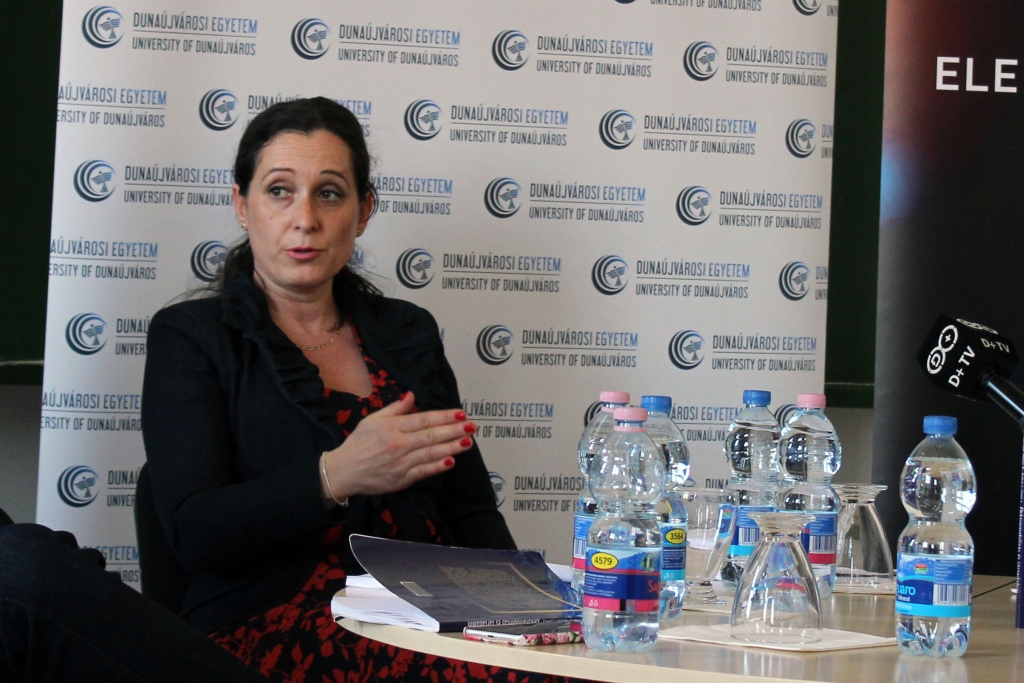The volume "Electromobility and Society" is the work of the Electromobility Research Group of the Institute of Social Sciences of the University of Dunaújváros and foreign researchers, which was formed in 2019 with the participation of the authors, editors and proofreaders of the volume.
The event was attended by Dr. László Balázs, Vice-Rector for Education, Editor-in-Chief of the book; Dr. Andrea Keszi-Szeremlei, Director of the Institute of Social Sciences, the book's editor, as well as the authors of the book, Dr. Orsolya Falus, Associate Professor of the Institute of Social Sciences and Szilvia Kovács, Assistant Professor of the Institute of Social Sciences and Dr. Petra Pandur, Assistant Professor of the Institute of Social Sciences.
The relevance of the book lies not only in the topicality of the subject, but also in the fact that it places great emphasis on the emergence and spread of electromobility in the Dunaújváros region.
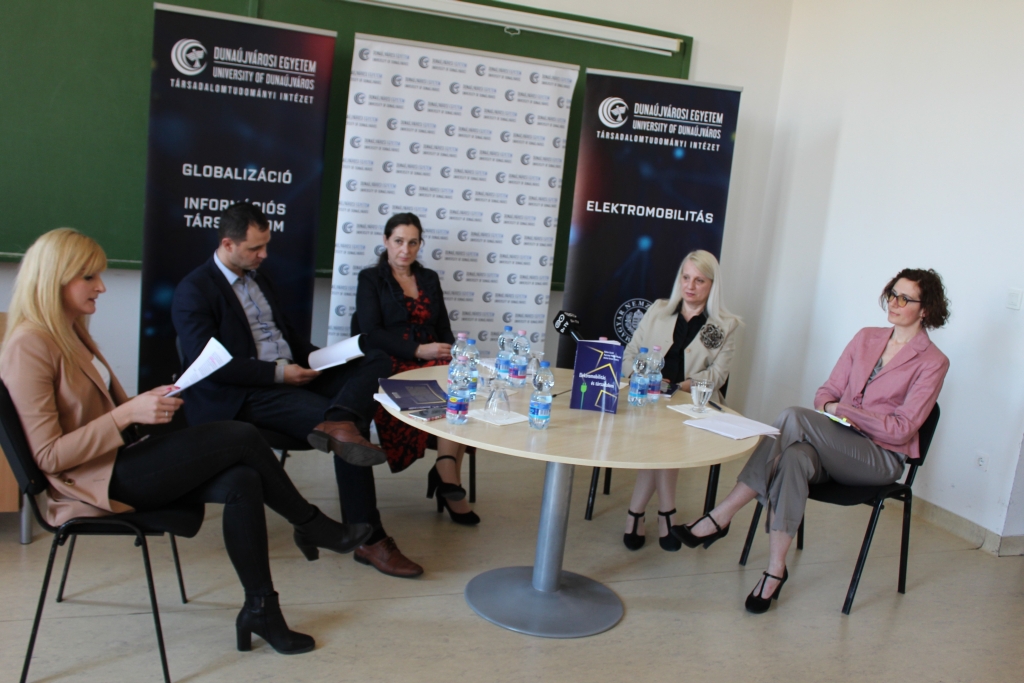
The publication is divided into two major sections. The first part examines the issue of electromobility on the basis of domestic studies, providing a comprehensive basic knowledge on the topic. The final module discusses international research in English, explores legal regulations and comparative analyses. An important part of the research that contributed to the production of this volume was to assess the attitudes and impressions of society as a whole towards electromobility," said Dr László Balázs, following his welcome address.
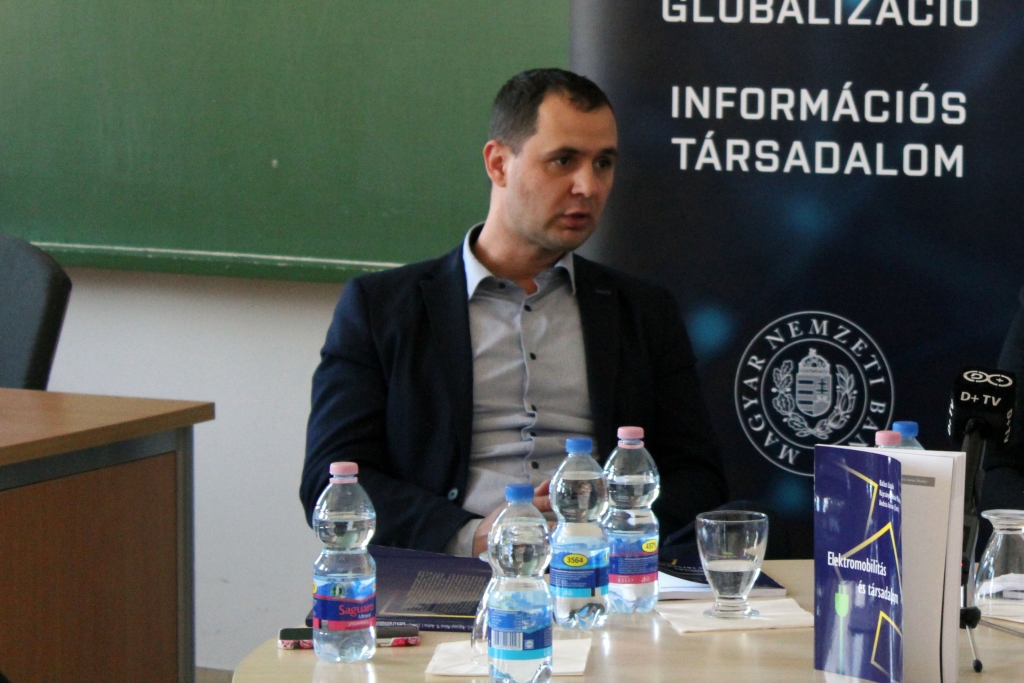
Szilvia Kovács told us that many people are interested in this issue, many have basic knowledge about it, but they are also aware that their knowledge is probably outdated. It also revealed that women feel less included, even though they are an integral part of the stakeholder community as parents and decision-makers in the purchasing process. In contrast, men were critical of the insufficient incentive quality of public support. In this area, development and purchasing cannot take place without the state, since free parking, the use of bus lanes and certain toll discounts are made possible at municipal level for vehicles with green plates. The biggest obstacle for everyday users to purchase is the lack of information, with many believing that e-cars are inaccessible to the general public because of the price. Other deterrents include beliefs about technology, safety, operation, servicing and infrastructure.
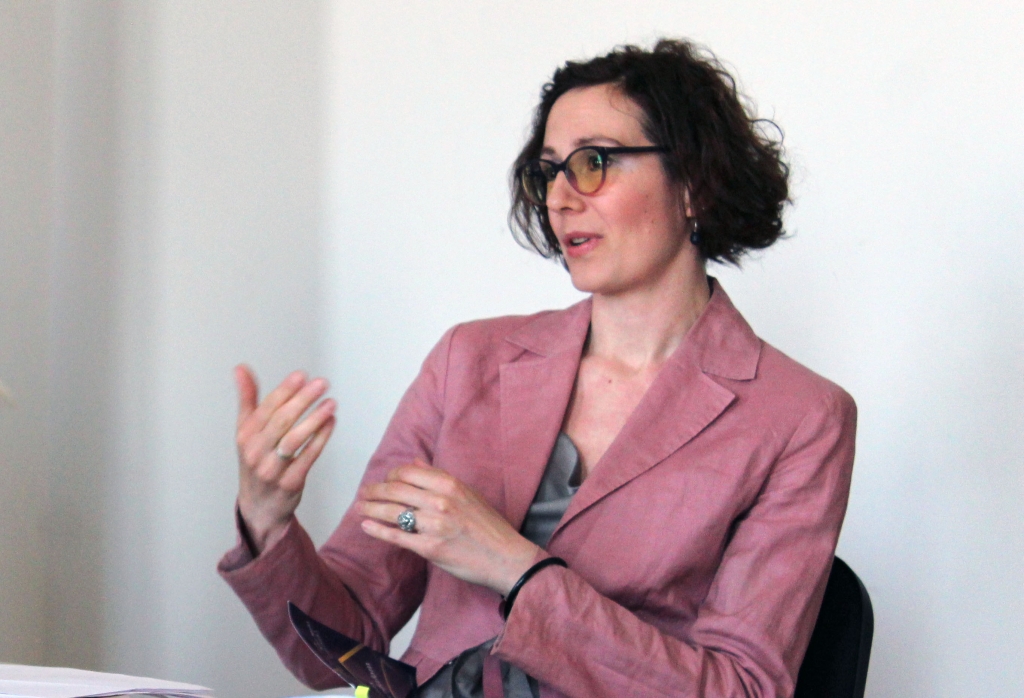
The event was then opened by Dr. Orsolya Falus, who approached the phenomenon of electromobility from a legal perspective, presenting comparative analyses carried out in the international arena. She explained that the level of development of Hungary and Turkey in this field is very different, due to the lack of professionals, the development of telecommunications and the membership of the European Union. The concept of smart cities includes not only electric vehicles, but also many other things, such as green buses, interconnected systems of telecommunication networks, which make life much easier for users, for example by reducing waiting times at official bodies or warning of congestion in cities. Under current criminal law regulations, the individual as driver is liable in the event of a road accident, as awareness is presumed and control is expected from the driver.
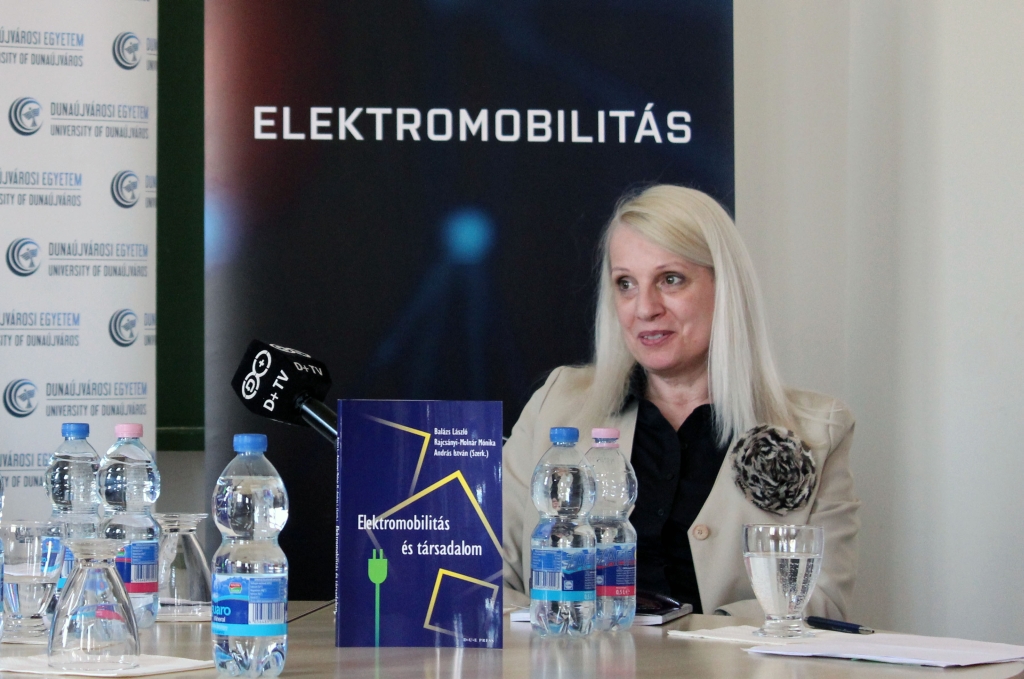
To conclude the event, participants explored the question of how electromobility contributes to individual happiness. Szilvia Kovács highlighted the transferable knowledge through a personal story. Dr. László Balázs highlighted the aspect of awareness and individual responsibility. Dr. Orsolya Falus spoke about the relevance of electromobility, highlighting the certainty of help. Dr. Andrea Keszi-Szeremlei expressed her pleasure to contribute, even if only a little, to the fight against global warming through electric transport.
